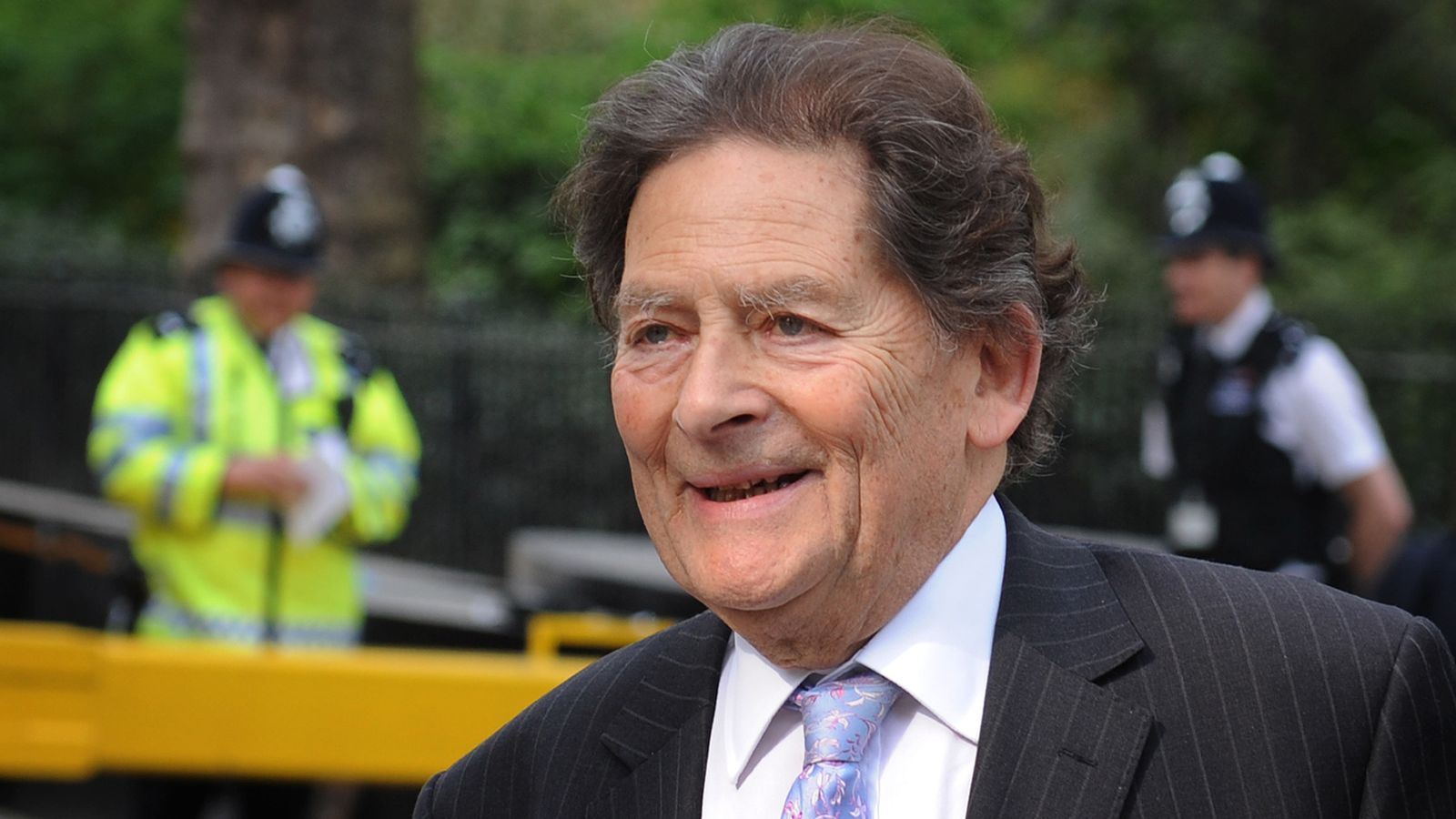Former chancellor Nigel Lawson dies

Former Conservative chancellor Nigel Lawson has died at the age of 91.
Prime Minister Rishi Sunak said the party grandee “was a transformational chancellor and an inspiration to me and many others” as he paid tribute on Twitter.
Lord Lawson was a Conservative MP representing the constituency of Blaby from 1974 to 1992, and served in Margaret Thatcher’s cabinet from 1981 to 1989.
Best known for his role as chancellor, he retired from the House of Lords in December, ending a parliamentary career stretching back nearly five decades.
Lord Lawson is survived by six children including celebrity chef Nigella Lawson and journalist Dominic Lawson.
Tributes from the world of politics began pouring in following his death.
Former prime minister Boris Johnson said Lord Lawson was “a fearless and original flame of free market Conservatism”.
“He was a tax-cutter and simplifier who helped transform the economic landscape and helped millions of British people achieve their dreams,” he added.
“He was a prophet of Brexit and a lover of continental Europe. He was a giant. My thoughts and prayers are with his family.”
Advertisement
Chancellor Jeremy Hunt said he was a “rarity amongst politicians, someone who transformed our thinking as well as transforming our economy”.
Foreign Secretary James Cleverly called him “a true statesman”, adding: “His contributions to this nation will not be forgotten.”
Deputy Prime Minister Dominic Raab said Lord Lawson was “a giant who changed the political weather, a lodestar for Conservatives, and a kind man always generous with his wisdom”.
Tory Party chairman Greg Hands said he will be remembered “for his clarity of thinking, commitment to free market economics and willingness to challenge orthodoxies”.
Born in Hampstead, northwest London, on 11 March 1932, the son of the owner of a tea-trading firm climbed his way to the top of British politics after an education at Westminster School and Oxford University.
His political life started at Oxford, where he studied Philosophy, Politics and Economics – but he began his working life carrying out national service as a Royal Navy officer.
Lord Lawson, as he was to become, then became a financial journalist for 14 years before entering politics at the age of 42.
He served a number of positions in Mrs Thatcher’s government before she appointed him as chancellor – a position that ensured he would go down in the history books.
Mr Lawson, the second longest-serving chancellor after Gordon Brown, was key to Mrs Thatcher’s economic policies – and success.
He pushed ahead with tax reforms, reducing corporation taxes and lowering National Insurance contributions for the lower-paid, while extending the VAT base.
One of his major triumphs was the Big Bang of 1986, which saw the City’s financial markets deregulated and strengthened London as a financial capital – though in 2010 he admitted the “unintended consequence” of that was the 2007 financial crisis.
He even had a period of economic growth named after him. The Lawson Boom saw the UK economy on the up after 1986, with unemployment halved.